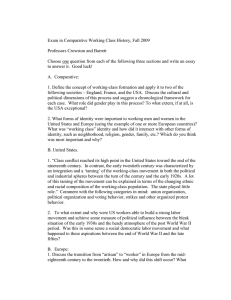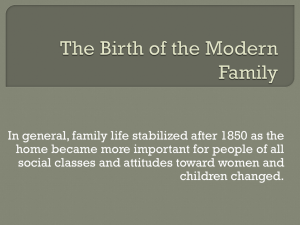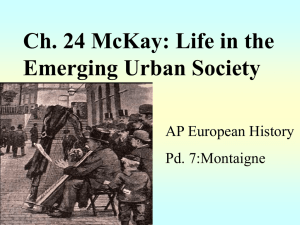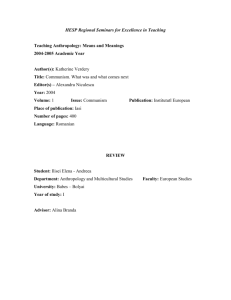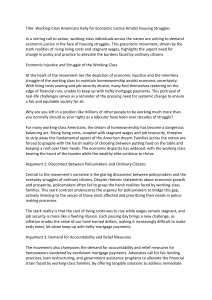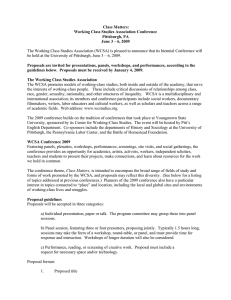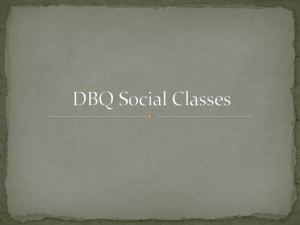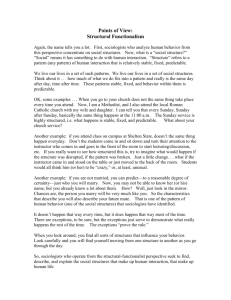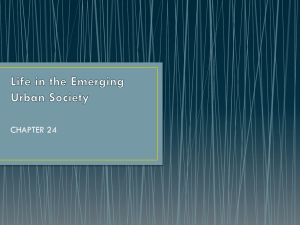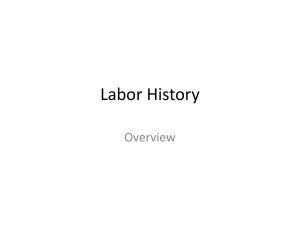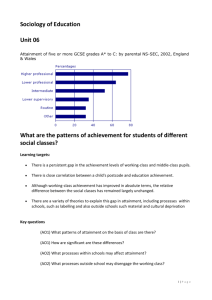Learning Democracy
advertisement
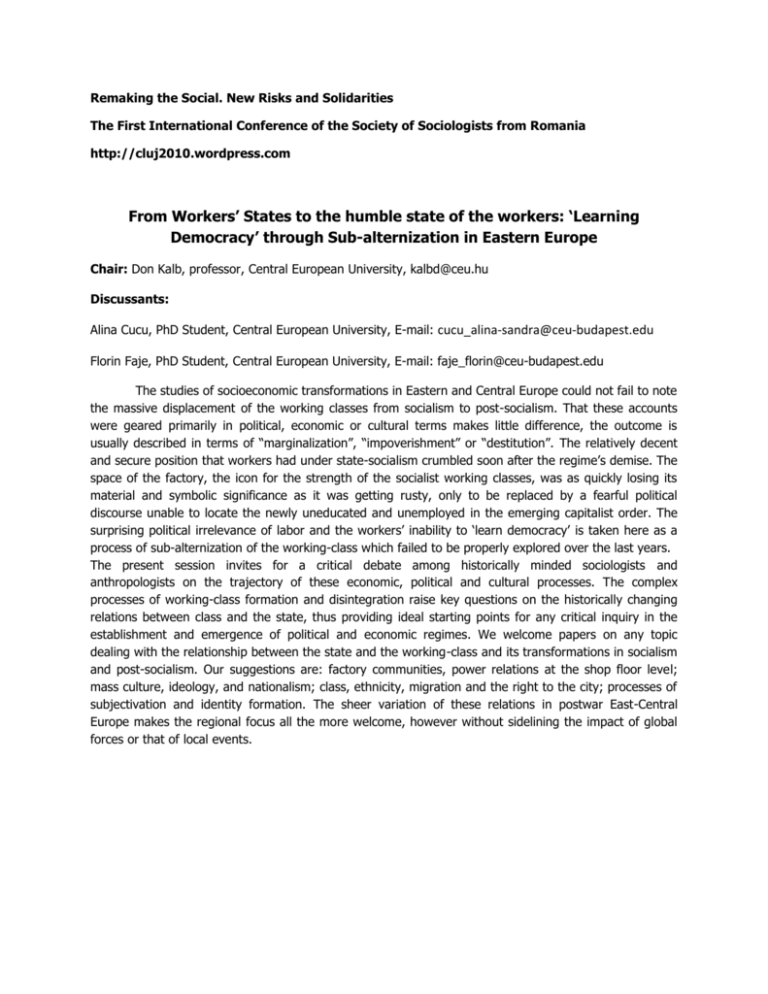
Remaking the Social. New Risks and Solidarities The First International Conference of the Society of Sociologists from Romania http://cluj2010.wordpress.com From Workers’ States to the humble state of the workers: ‘Learning Democracy’ through Sub-alternization in Eastern Europe Chair: Don Kalb, professor, Central European University, kalbd@ceu.hu Discussants: Alina Cucu, PhD Student, Central European University, E-mail: cucu_alina-sandra@ceu-budapest.edu Florin Faje, PhD Student, Central European University, E-mail: faje_florin@ceu-budapest.edu The studies of socioeconomic transformations in Eastern and Central Europe could not fail to note the massive displacement of the working classes from socialism to post-socialism. That these accounts were geared primarily in political, economic or cultural terms makes little difference, the outcome is usually described in terms of “marginalization”, “impoverishment” or “destitution”. The relatively decent and secure position that workers had under state-socialism crumbled soon after the regime’s demise. The space of the factory, the icon for the strength of the socialist working classes, was as quickly losing its material and symbolic significance as it was getting rusty, only to be replaced by a fearful political discourse unable to locate the newly uneducated and unemployed in the emerging capitalist order. The surprising political irrelevance of labor and the workers’ inability to ‘learn democracy’ is taken here as a process of sub-alternization of the working-class which failed to be properly explored over the last years. The present session invites for a critical debate among historically minded sociologists and anthropologists on the trajectory of these economic, political and cultural processes. The complex processes of working-class formation and disintegration raise key questions on the historically changing relations between class and the state, thus providing ideal starting points for any critical inquiry in the establishment and emergence of political and economic regimes. We welcome papers on any topic dealing with the relationship between the state and the working-class and its transformations in socialism and post-socialism. Our suggestions are: factory communities, power relations at the shop floor level; mass culture, ideology, and nationalism; class, ethnicity, migration and the right to the city; processes of subjectivation and identity formation. The sheer variation of these relations in postwar East-Central Europe makes the regional focus all the more welcome, however without sidelining the impact of global forces or that of local events.
